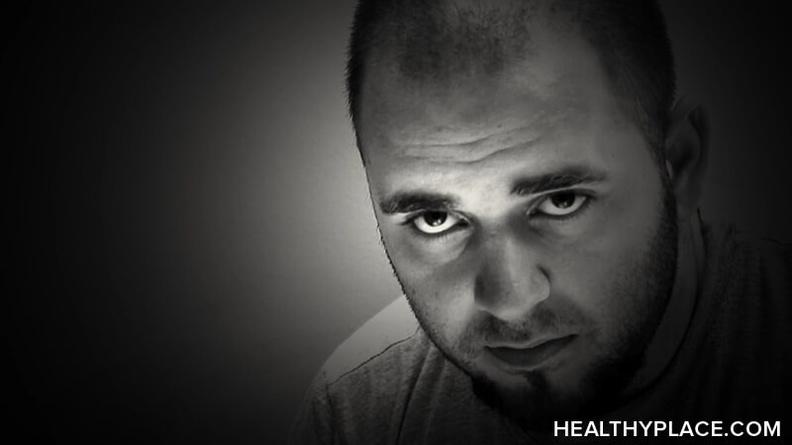Mental Illness and Violence: Shattering the Myths

There are so many myths about mental illness and violence. In fact, part of the stigma of mental illness is due to fears of violence. I wince every time someone with a psychiatric diagnosis commits a crime because it reinforces this stigma and teaches people to be afraid because they believe there is a link between mental illness and violence. But a study by Northwestern University found that most mental illnesses aren't predictors of violence.1 The only exception is a substance abuse disorder. So how do we shatter the myth that mental illness means a person will be violent?
Why the Mental Illness and Violence Myths Exists
The first step to defeating a myth is asking why it exists. So the million-dollar question is: "Why do people believe there is a link between mental illness and violence?"
The best answer to this is an oft-repeated line from the 1990s series X-Men: "People fear what they don't understand." People don't understand mental illness, so they turn to the media in order to understand it--and the media often sensationalize mental illness.
I could give a lengthy list of examples of stigma in the media, and I'm sure you could, too. As a general rule, a person with mental illness is portrayed as a villain who can not be treated, is violent for the sake of violence, and needs to be put away. When this portrayal is the only one that exists, can you blame people for being afraid?
The main fear non-mental health consumers have of us is the likelihood of violence. But, as this new study says, there is no link. So how do we teach people that they don't have to fear us?
Talk About Violence and Mental Illness
Katherine Elkington, one of the study authors says:
Providing comprehensive treatment to persons with some psychiatric disorders could reduce violence . . . We must improve how we address multiple problems -- including violent behavior -- as part of psychiatric treatment.
 But in order to do that, the public has to be willing to pay for it. And to do that, we have to convince the public that treatment is available and effective for mental illness and violence.
But in order to do that, the public has to be willing to pay for it. And to do that, we have to convince the public that treatment is available and effective for mental illness and violence.
Imagine how the stigma would fare if every time a person with mental illness engaged in an act of violence, the media explored this myth. What would happen to the stigma if people knew that there was no link between mental illness and violence? What would happen to the stigma if people knew that even severe disorders such as schizophrenia and dissociative identity disorder could be treated? What would happen if the media portrayed people with mental illness in a positive light?
People with mental illness are not bogeymen. It's time for the media to portray us responsibly.
Fund Mental Illness Treatment Adequately
I've written before that mental illness treatment barriers are often a problem (Is Mental Illness the Problem?). When President George W. Bush was in office, he established the New Freedom Commission to examine mental health treatment. The findings were troubling. Surgeon General David Satcher wrote:
Another manifestation of stigma is reflected in the public’s reluctance to pay for mental health services . . . While the public generally appears to support paying for treatment, its support diminishes upon the realization that higher taxes or premiums would be necessary.
All the treatment in the world is no good if a person needing it can't access it. That's why we need to fund treatment adequately.
According to the American Journal of Psychiatry, nearly 50 percent of people seeking mental health care are forced to rely on self-payment to pay for treatment. Prior to the Affordable Care Act (ACA), insurance companies could refuse to cover someone with mental illness due to a pre-existing condition. That's why I'm guardedly optimistic about the ACA--when people with a severe mental illness have access to treatment, society will see that treatment is available and effective, and the myth of mental illness and violence is lessened.
You can also find Becky Oberg on Google+, Facebook and Twitter and Linkedin.
Source
1 Northwestern University. (2015, April 24). Mental disorders don't predict future violence, study suggests. ScienceDaily. Retrieved September 1, 2017.
APA Reference
Oberg, B.
(2015, May 11). Mental Illness and Violence: Shattering the Myths, HealthyPlace. Retrieved
on 2025, December 28 from https://www.healthyplace.com/blogs/recoveringfrommentalillness/2015/05/mental-illness-and-violence-shattering-the-myths